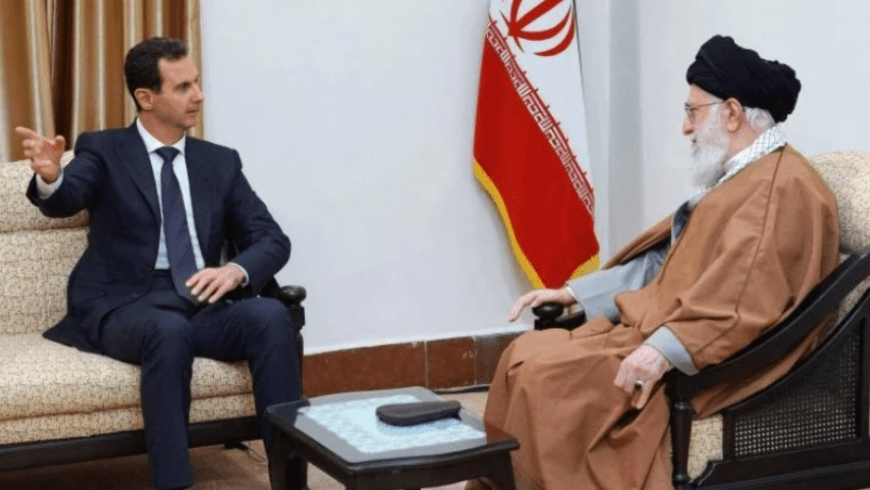
The newspaper said Russia is expected to be the losing side in the Ukraine war, according to Syria TV.
In a report titled “The Syrian Scenario of Russia,” the reformist Iranian newspaper Aftab News highlighted the accelerating regional and international events and their negative economic and geopolitical repercussions on Putin, Assad, and Tehran. The report suggests that these repercussions could negatively impact the extent and nature of Iran’s decade-long support for Assad and might lead to Russia’s defeat in the international war unfolding in Ukraine.
Aftab News subtly criticized Iran’s regional and international policies, particularly those outlined by the Supreme Leader in Syria. The newspaper, under a broad headline, noted that both Vladimir Putin and Bashar al-Assad are currently in precarious positions—Putin, embroiled in a draining and costly war in Ukraine, and Assad, struggling with a dire economic situation.
The report first referred to the recent advance of the Ukrainian army deep into Russian territory for the first time, describing the pressure from the Ukrainian forces as so intense that the Russian army attempted to retreat in some areas. This was portrayed as the first occupation of Russian territory by a foreign power since the end of World War II.
The more than decade-long conflict in Syria has significantly worsened the well-being of Syrian families, with 27 percent of Syrians—around 7.5 million people, nearly one in four—living in extreme poverty. This poverty has been exacerbated by the devastating February 2023 earthquake, which claimed nearly 6,000 lives across Syria.
Several external factors have contributed to the decline in the well-being of Syrian families in recent years, including the financial crisis in neighbouring Lebanon since 2019, the repercussions of the COVID-19 pandemic, and the Russian-Ukrainian war.
One of the recent crises affecting the Syrian people is the sharp economic inflation, with many business transactions now conducted by weighing money. The newspaper emphasized that this change is a direct result of the steep decline in the value of the Syrian pound, forcing traders and ordinary citizens to carry large amounts of cash even for daily purchases. This inflation has deepened despair in Syria, with the economy entering its most fragile phase. The possibility of a meaningful recovery seems distant, as the country’s financial challenges far exceed any available solutions.
Russia’s geopolitical defeat and its repercussions on Iran
Russia is expected to be the losing side in the Ukraine war, despite what Iran’s Supreme Leader Ali Khamenei has claimed. He emphasized that the best strategy for Iran to boost its regional influence is to normalize and even rapidly enhance relations with the U.S., Europe-Pacific, and East Asia.
Regarding the geopolitical impact of Russia’s potential defeat on Iran, Aftab News quoted Yadollah Karimipour, a political geography professor at Khawarizmi University, who stated that Russia will likely lose its influence in the South Caucasus. Karimipour noted that competition among Turkey, Europe, the U.S., and, to a lesser extent, China for expanding their influence in the Caucasus is expected to become a major issue.
Economic Crisis and Potential Rebellion in Syria
Addressing the severe economic crisis in Syria and the potential for an uprising, Middle East researcher Mohammed Osmani told Aftab News that rampant inflation has dramatically impacted daily life in Syria.
“The prices of goods and services have soared, while people’s purchasing power has plummeted,” Osmani explained, warning that these conditions could trigger widespread discontent and possibly lead to popular revolts.
The report underscored the deep suffering of Syrian society and the political, ideological, and religious divisions that have emerged after more than a decade of war. Today, Syrians are divided locally into factions either “for or against the government,” “for or against the government’s ideology,” or “for or against the resistance.”
The ongoing national identity crisis has created a complex social situation. With many countries in the region similarly affected by regional crises, Syria’s high inflation, declining purchasing power, and social and political unrest could spark protests and riots, particularly if the government fails to address the economic challenges effectively.
The report concluded that Syria has become a deteriorating state, surviving largely on the artificial support of Iran and Russia.
